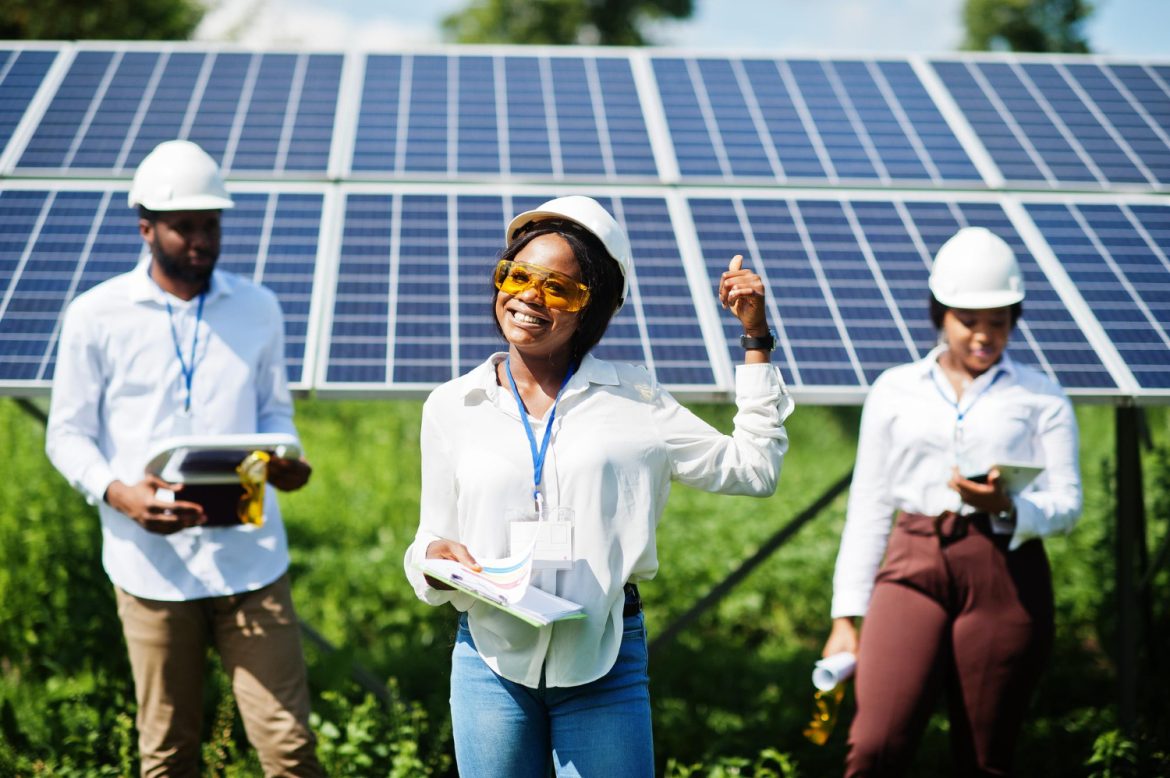Ghana has unveiled a groundbreaking plan to achieve net-zero energy-related carbon emissions by 2060, making it one of the first African countries to commit to such a target. The plan, launched by President Nana Akufo-Addo during a Global Africa Business Initiative event in New York, outlines how Ghana can transition to a low-carbon economy through the deployment of clean energy solutions across key sectors, such as oil and gas, industry, transport, cooking, and power.
The plan, which was developed by the Government of Ghana with technical support from Sustainable Energy for All (SEforALL), a UN-backed organisation, and Bloomberg Philanthropies, a philanthropic foundation, represents a USD 550 billion investment opportunity for the international community. It also promises to create 400,000 net jobs within Ghana’s economy and improve the well-being of its people.
Ghana’s plan is based on the latest data and evidence, and builds on its existing Energy Transition Framework, which previously set a target of net zero by 2070. The new plan shows that Ghana has increased its ambition and is aiming to achieve net zero by 2060, a decade earlier than before. The plan also aligns with Ghana’s Nationally Determined Contribution (NDC) under the Paris Agreement, which commits the country to reducing its greenhouse gas emissions by 15% by 2030, compared to a business-as-usual scenario.
The plan proposes various sectoral changes and technologies to decarbonise Ghana’s energy system. Four main technologies – renewables, low-carbon hydrogen, battery electric vehicles and clean cookstoves – would account for over 90% of the emissions reduction by 2060. The plan also suggests measures to enhance energy efficiency, energy access, and gender equality in the energy sector.
Without pursuing the plan, Ghana’s emissions are projected to rise from 28 Mt CO2e in 2021 to over 140 Mt in 2050, with most of the growth coming from transport, driven by population growth, GDP per capita growth, and vehicle ownership. By implementing the plan, Ghana and its partners can instead bring the country’s energy-sector-related carbon emissions to net zero, while demonstrating that climate action does not need to compromise economic development.
The plan has received praise from various stakeholders, including Damilola Ogunbiyi, the CEO and Special Representative of the UN Secretary-General for Sustainable Energy for All, and Co-Chair of UN-Energy, who said: “Ghana’s commitment to a just and equitable energy transition has translated to an ambitious plan that builds a case for low-carbon and energy-efficient solutions across Ghana’s entire energy system. These solutions present a tremendous opportunity for partners and investors from around the world to contribute to climate action and sustainable development in Ghana.”
Ghana’s plan is expected to serve as a model for other African countries that are looking to transition to a low-carbon future, while also meeting their development goals. Ghana is also keen to exploit its natural resources, such as lithium and graphite, which are essential for electric vehicles and battery technologies, and to establish itself as a hub for green industries in the region.
Ghana’s President Akufo-Addo said: “This pioneering Energy Transition and Investment Plan maps out Ghana’s journey to achieve net-zero emissions by 2060 based on the latest data and evidence, ensuring that as our economy thrives, it does so in harmony with the environment. This plan is a testament to our dedication to fostering green industries, nurturing the evolution of cutting-edge low-carbon technologies, and propelling our nation towards a sustainable industrial revolution while giving equal growth opportunities to men and women.”
Source: Electric Energy Online



